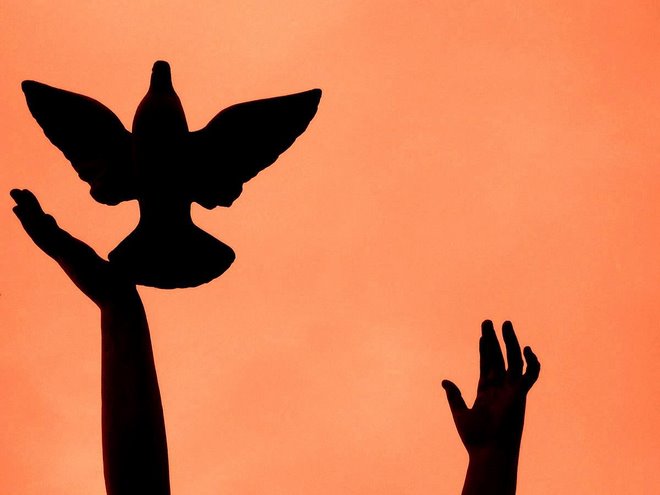On June 6th, 1999, there was a jail break in São José dos Campos. Actually, jail break isn't exactly the right term, since what really happened was that 345 prisoners suddenly rushed for the main gate and ran out without being stopped, shot at, or challenged in any way. The escapees invaded homes, took hostages, and stole cars to get away. The authorities killed two fugitives and wrongfully imprisoned five innocent citizens. After 4 days 191 fugitives were still at large. It is strongly suspected that the warden and prison guards were bribed to allow the breakout.
Thursday: Say What?:
These days we've all heard something about the “Hermit Kingdom.” North Korea is the most secretive and for me the most frightening country on earth today (as for frightening, N. Korea has the fourth largest army in the world, 1.2 million soldiers, which means that 1 in 20 people is in the army. But anyway, this isn't what I wanted to talk about). The National Defense Commission Chairman Kim Jong-il claims an ideology called Juche (pronounced “joocheh”), which in N. Korea is centered on a principle of self-reliance and not being dependent. This translates into a national rejection of all things foreign and especially western, and a policy of isolation from the corrupting, manipulative, and evil effects of outside influences. Kim Jong-il, however, doesn't seem to practice what he preaches. It is reported that Kim has a private collection of 20,000 DVDs. Since North Korea doesn't have much of a film industry (although he did personally order the kidnapping of a South Korean film director and his actress wife in hopes of starting a North Korean film industry), it can be assumed that most of these are foreign. It's said that his favorite films include “Friday the 13th,” “Rambo,” and James Bond, Godzilla, and Hong Kong action movies. Scary, huh? He also likes any film with Elizabeth Taylor. Go figure.
Kim also spends $700,000 a year on Hennessy cognac, which makes him the biggest customer of the drink. He owns 100 imported limousines, and has a basketball signed by Michal Jordan (a gift from US Secretary of State Madeleine Albright. Kim is evidently a big fan of basketball).
On another note, Kim shares his father's extreme fear of flying. Whenever he has made his rare visits to Russia or China, he has traveled by armored train.
Friday: Wow!:
Electric eels are actually fish, and the work like a long, swimming battery. The head is the positive pole and the tail is the negative pole. The organ that produces the electricity is made of 5,000-6,000 separate parts, and emits 25-50 electrical pulses per second. If you are ever wading in a marshy area of the Amazon Basin and see one, don't worry, it won't see you. Electric eels go blind as they become adults because of exposer to constant electric fields. But unfortunately they can hear every move you make and sense you with their electric “radar,” so you might want to get out of the water. Adults can grow to be 8 feet long (2.5 meters), and can attack with as much as 600 volts, which is enough to potentially kill a horse or send a grown man flying through the air!
Saturday:
Snoopy (the dog in the comic strip “peanuts”) has a brother named Spike. He lives in the desert, and is poor and looking for a way to make money.
(Thank you Kaori of Japan!)
Sunday: Series:
I'm announcing a new category to this newsletter. There are some things that just cannot be covered in a single entry, and I'm confident that you won't quickly grow bored of it, so I'll announce a “Series.” Usually this topic will continue for a month, or until I'm bored of it. And what better topic to start with than Penguins! I'm going to start with an introduction to the species in general, and then maybe do several profiles of specific types of penguins.
The name penguin probably came from Welsh, meaning “white head.” However, there is a lot of evidence that the name comes from the Latin “pinguis” which means “fat.”
While penguins can be found in Africa, South America, Australia, New Zealand, the United Kingdom (Faukland islands), Norway (Peter I Island), a large number of small islands, and of course Antartica, they all live entirely in the southern hemisphere. The northern-most live on the Galapagos islands, just south of the equator. This means that polar bears are not predators of penguins, and that probably no polar bear has ever met a penguin in the wild. Penguins have
 very few land predators, especially the further south you go, as nothing else wants to be out in the cold. This means that penguins are often very friendly and curious about humans, since they have no reason to be afraid (see picture).
very few land predators, especially the further south you go, as nothing else wants to be out in the cold. This means that penguins are often very friendly and curious about humans, since they have no reason to be afraid (see picture).Being approached by a curious penguin could be delightful or rather intimidating, depending on the size. Can't imagine an intimidating penguin? Well consider that emperor penguins can be 6 ft high (1.8 meters), and weigh up to 100 pounds (45 k)! On the other side, the Little Blue Penguin grows to an average of 16 inches (40 cm) and 2.2 pounds (1 kilogram).
Of course we know that all penguins are excellent swimmers, but just how excellent? The Emperor penguin can hold its breath for 22 minutes, and dive up to 1870 feet (565 meters). I have trouble diving 15 feet! The Gentoo penguin can swim 22 mph (36 kph). So basically if you run from a penguin as fast as you can on a sheet of ice, and the penguin is swimming under you, you're a goner. And some (the Emperor, for example), can jump more than 6 feet (1.8 meter) out of the water. Imagine you're a person of normal height, standing on the edge of the ice, minding your own business, and suddenly a 100 pound penguin comes rocketing out of the water and flies over you. Who says penguins can't fly?!
For some final trivia: Almost all penguins lay two eggs (except Emperor and King). Most penguins couples care for the eggs as a team. They drink salt water (they have filters that dispose of the salt through their nose). They have an incredible navigation system, being able to find their way home from 100s of miles away, and science still doesn't understand how they do it. Finally, penguins are scientifically considered to be the coolest animals on earth!
Next week: Penguins and Rocks (or Penguins Rock!)
Monday: Actually...:
I always assumed that African colonialism lasted 300-400 years, but that's actually not true at all! Certainly Europeans were taking slaves out of Africa for many hundreds of years, but the period of actual political
 occupation didn't begin until the 1880s. Before this time there were only a few permanent European stations on the coasts of the continent. (see pic: Africa 1878) In 1884 the Berlin Conference made “flag-planting” legal in Africa.
occupation didn't begin until the 1880s. Before this time there were only a few permanent European stations on the coasts of the continent. (see pic: Africa 1878) In 1884 the Berlin Conference made “flag-planting” legal in Africa.  This meant that whichever country put a flag on an area
This meant that whichever country put a flag on an area  first could claim it for themselves. In less than 20 years the entire continent was claimed by European powers (see pic: Africa 1914). Even more amazing is that the colonial period collapsed just a suddenly as it was constructed. There was a flurry of independence revolutions in the 50s and 60s, and by 1980, only South Africa and Namibia were still colonies (see pic: Africa 1980). That's a pretty dramatic tide of power!
first could claim it for themselves. In less than 20 years the entire continent was claimed by European powers (see pic: Africa 1914). Even more amazing is that the colonial period collapsed just a suddenly as it was constructed. There was a flurry of independence revolutions in the 50s and 60s, and by 1980, only South Africa and Namibia were still colonies (see pic: Africa 1980). That's a pretty dramatic tide of power!Tuesday:
The other day I was watching two of my Japanese friends discussing how to translate a phrase from English to Japanese. They were speaking in Japanese so I really couldn't follow much (okay, not a syllable). Then one of them started making lines in the air in a questioning way, and I realized she was asking about spelling! This was a revelation for me, because I'd never thought about spelling problems with Japanese and Chinese characters, but it suddenly dawned on me that all those lines and dashes could be “misspelled” just as easily as English words, and maybe more easily! When I asked if they had to think about spelling one said “well yeah, it's complicated!” Sure, it's common sense, but I'd never thought about it before.
(Thanks Megumi and Kaori!)
Wednesday:
A while ago I talked with a friend of mine who studied in New Zealand, and I got some very interesting information about the New Zealand school system. (and for my Kiwi readers, feel free to correct me! (for anyone who doesn't know, “New Zealanders” are often called “Kiwis,” probably because the unusual and adorable kiwi bird is endemic to New Zealand, and because New Zealander is too long to say regularly)). Kiwi schools are uniform statewide, meaning that material, holidays, and even uniforms are the same at virtually every school. All students wear uniforms, which speaks of the British heritage of the nation, but my friend reported that there is a fascinating blend of the more strict British approach and the very relaxed Pacific Island approach. It's normal for students to come to school in full uniform, but barefoot. Also, apparently almost all the teaching material is based on New Zealand: the history, literature, art, politics, economics, etc. is all about New Zealand with very little about other countries. Well, that's how it is in the US, but it's surprising for a smaller country.
The thing that most surprised me is that high school is seven years, but students can leave whenever they want. That right, when they've had enough of high school they just stop going! Okay, it's not that simply. After high school there are two main options. To go to a university you must go through all seven years of high school. But many students choose a career or trade they want to go into, and leave high school to go to a school that will train them in that specific job (such as mechanics, police, or carpenters). So as the years go by, the classes in high school get smaller and smaller, until by the seventh year there are much fewer students than in the beginning!
(Thank you Rinn of California and New Zealand!)
Thursday: World Problems:
Have you ever thought of mice as a potential “world problem”? When you see this video from Southern Australia, you will! http://www.glumbert.com/media/mice
Friday: Question:
An interesting question was brought to my attention a while ago. Considering that western culture has a long tradition of women wearing head coverings, such as Catholic Nuns, Mennonites, Amish, and early Calvinists, etc.; why do we have such problems with Muslim head-coverings?
Saturday: On a personal note:
Of the many voices in a Man, the soul speaks the softest, but it possesses the greatest effecting power over every element of life. Still the soul speaks only through this mouth of flesh, and the spirit is buried deep beneath all that this body feels and needs.
And on a slightly less abstract personal note: my plans for the summer. Well, some of you know that my brother Ben and his fiancé Liz announced their wedding for August 31st. They chose the week that their best friends and I would all be in the same state, so there weren't too many options. This means that I won't be returning to the Czech Republic until after the wedding (I plan to arrive in Prague on the evening of September 4th). So the goal now is (in order) 1. get a summer job and make money for the ridiculously expensive tuition costs of studying abroad in Prague ($11,000 just for classes!) 2. apply for as many scholarships as possible, 3. relearn the Czech language :-/ 4. work on my photography and opening up photographic jobs. 2½: Answer all the emails sitting in my box!
I thought I'd found the perfect opportunity for all of this, which was to teach English in South Korea for a month at a summer camp. Many of these jobs pay $2000 and airfare for one month of teaching, so it seemed like the perfect thing. After several days of emails with a very nice Korean teaching agency, during which I got pretty excited about the idea, I discovered during our phone conversation about an hour ago that you cannot get a Korean work visa without a completed bachelor's degree. Grrrr, one semester away. Well, maybe in the future...
So now I'll be looking for a regular summer job serving yogurt or cutting down bushes or something. :-) Scholarships are still a priority, I just need a little break from academic activities. I've started reading a Czech book again (with my pocket dictionary falling apart from use). And for photography, please check out http://www.risingdove.deviantart.com/
So my only exciting plan is a determination to visit Matt Slabaugh and Jessie Folk (and maybe Steve Cone) in Chicago, probably in mid-August (of course, this is the first time they've heard of this plan, so we'll see how carefully they read these newsletters! :-). And as for 2½, this is part of the attempt to reconnect with everyone. I'm slowly working through the individual emails that pilled up when school was overwhelming. If there's something urgent that I haven't answered please remind me. Thanks.
Okay, I wrote this a few days ago. The new news is that I got a job! And it's much more exciting than I imagined! It's in Long Beach (Los Angeles), with an English camp for international high school students (I know, is that perfect or what?!) My job will be as an Activity Leader, which means that I'll help organize students in daily sports, games, and trips to theme parks, museums, etc. We'll also take trips to Las Vegas and San Francisco. It's my job to make sure the students stay entertained while not breaking any rules. Basically, it's a bigger (600 students), less stressful (the day starts at 10:00!) English camp where I get paid! ($2000!). It's perfect! And also I now have an adventure and new experience to look forward to, which is really nice. And I'll be back in time for the wedding! The down side is that I thought I had three months to finish my summer goals, and now I basically have two weeks, but I'll have to manage!
Okay, that's all for now. Remember to check out http://www.risingdove.deviantart.com/ and http://www.discoverthepenguinsworld.blogspot.com/
Other Business:
Corrections:
Jitka Stara, who wrote a great note in response to “The Battle is in Surrender,” lives in Bavorov, CZ, not Branov, as I wrote. Sorry Jitka!
Comments:
In response to the question: “Are grades important?” Daniel Goudy of Chico, CA., had this to say: “Grades are simply a scoring system used to track how well you're doing at the game of school. As such, these points we call "grades" are not important in and of themselves, let alone relative to themselves. The problem is that people like to use them as indicators of status and ability, however inaccurate that may be. In such a context, the assumption of their importance can lead to them assuming importance. Not to put too fine a point on it, the important point to remember about the importance of points is that important people point to points as pointers of importance.”
In response to the question several months ago, “Isn't it true that everyone in the world likes cookies? Have you ever known any human being who did not like eating warm, fresh, home-made cookies?” Summer Root of Chico, CA., mentioned an experience to me. Apparently when their family was living in Western Africa (sorry, I can't remember the country. Senegal?) there were in a rural area. The Root family made cookies for them, but the people had never encountered processed sugar. Most of the children liked them, but the adults decidedly did not. Well, one more potential absolute goes splat! Thanks Summer!



2 comments:
testing testing
Oi, achei teu blog pelo google tá bem interessante gostei desse post. Quando der dá uma passada pelo meu blog, é sobre camisetas personalizadas, mostra passo a passo como criar uma camiseta personalizada bem maneira. Até mais.
Post a Comment